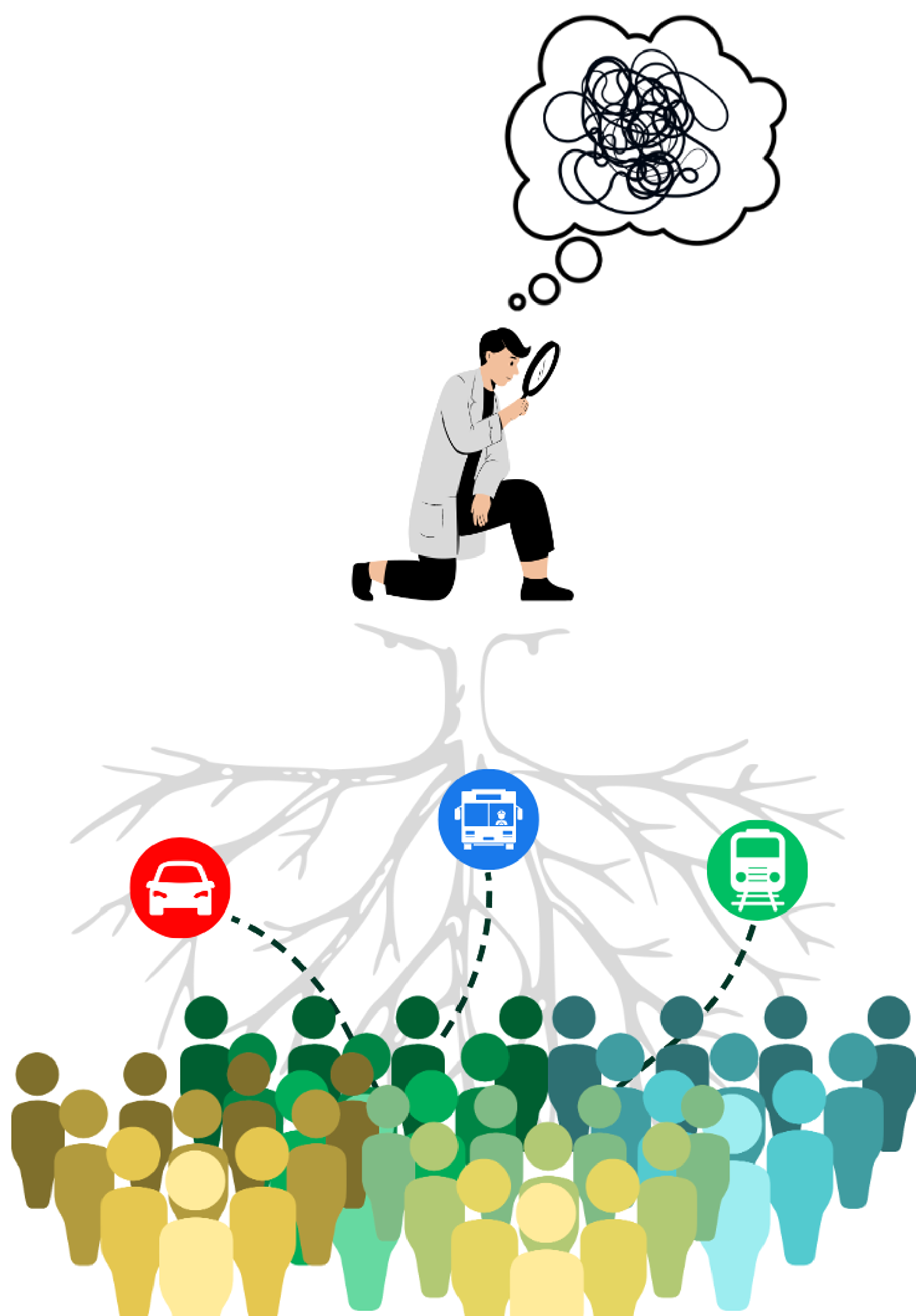Using artificial intelligence to comprehend, automate and assist choice modellers` decisions
Discrete choice modelling is a well-developed and theoretically underpinned modelling framework, which is used in various scientific disciplines for studying human behaviour, including in transport, health, economics, and marketing. Discrete choice models are typically used to infer preferences over attributes and alternatives as well as to compute consumers' willingness to pay, e.g. to improve a service or product. As such, discrete choice models are often instrumental to policymaking.
Choice modelling involves mixing formal behavioural theories and statistical methods with subjective judgments of the model builder (a.k.a. the choice modeller). Model building is often considered an art, and involves various stages, such as data collection, descriptive analysis, model specification development, and interpretation of outcomes. During the modelling process, numerous small and large decisions must be made by the choice modeller, such as which analyses to conduct and which model specifications to test. Nowadays there various textbooks and courses available to learn modelling choice behaviour.
However, the full modelling process leading to the final choice models reported in scientific papers and/or used for policy analysis is only partially codified. Small, but potentially important, modelling steps are underreported or even overlooked, especially those prior to the actual estimation of choice models. This lack of knowledge on the entire modelling process hampers discussion and development of best practices in choice modelling. Moreover, it holds back efforts to automate part of the modelling process in software packages.
The project has two main objectives. Firstly, it aims to provide a comprehensive understanding of the various modelling steps employed by choice modellers during the collection of choice data and the development of choice models. Secondly, it seeks to develop a set of tools that can support choice modellers by offering recommendations and automating various stages of data collection, analysis, model specification development, and outcome interpretation. These tools will streamline the process and enhance the efficiency of choice modelling, enabling researchers to make better-informed modelling decisions and draw meaningful conclusions from their analyses.

Contact
Gabriel Nova
PhD Candidate
G.Nova@tudelft.nl

